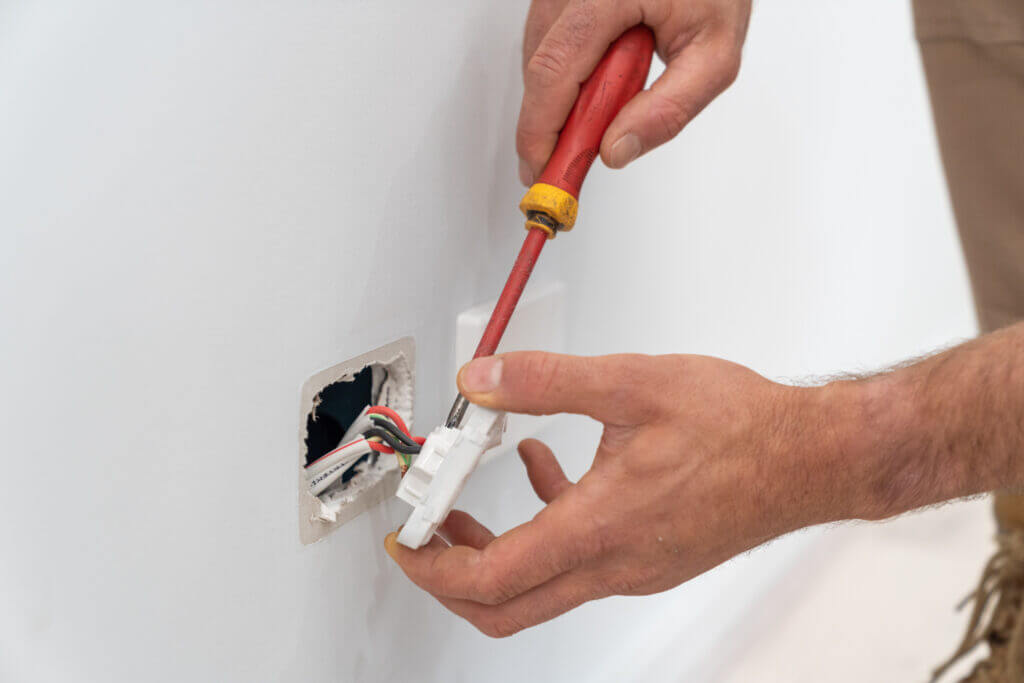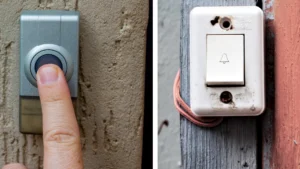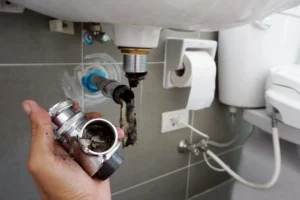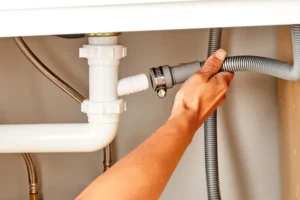Experiencing a power outage can be quite the hassle. Electricians play a crucial role in getting the lights back on quickly. This blog explores how they restore electricity and ensure our safety during these times.
Keep reading to learn more.
The Impact of Power Outages
Power outages can seriously affect people’s health and safety. They disrupt businesses, increase poverty levels, and pose risks like carbon monoxide poisoning.
Health consequences
Power outages can lead to serious health issues for individuals and communities. Electricians play a vital role in addressing these challenges during restoration efforts.
– Health complications arise when power outages disrupt medical equipment in hospitals and clinics. Patients reliant on devices like ventilators suffer without electricity.
– Families face increased risks of carbon monoxide poisoning when they resort to using generators indoors during an outage. This dangerous practice can lead to severe health consequences, including death.
– Temperature-related illnesses become common during extended power outages, especially in extreme weather conditions. People may experience heat exhaustion or hypothermia without proper heating or cooling facilities.
– Gastrointestinal illnesses may occur as refrigeration fails, causing food spoilage. Consuming spoiled food leads to foodborne diseases that affect several individuals at once.
– Increased mortality rates often follow prolonged power outages among vulnerable populations, such as the elderly or those with pre-existing health conditions. Timely restoration is essential to prevent loss of life.
– Electricians help restore power quickly to community health facilities, ensuring adequate care for those in need during emergencies. Their efforts are crucial in minimising health risks associated with lack of electricity.
– Public safety relies heavily on electricians’ ability to remove hazards like fallen power lines before restoring electricity after an outage. Their work protects people from potential accidents and injuries.
– Communities often face significant stress during outages due to the fear of their health being compromised without power restoration support from electricians and utility companies alike.
– Restoration plans focus on returning energy services swiftly while prioritising public health needs throughout the process by electricians working diligently in affected areas.
– Electrical emergency services provided by skilled electricians ensure that healthcare systems stay operational despite disruptions, enhancing safety for everyone involved.
Effects on MSMEs and poverty levels
Power outages significantly affect micro, small, and medium enterprises (MSMEs). Many businesses rely on electricity to operate daily. Interruptions in power can halt production and lead to financial losses.
These losses can push some MSMEs into poverty. Health facilities also struggle without power, impacting public health. Electricians work hard to restore power quickly to essential services.
Their role in restoring electricity helps reduce the economic impact on communities.
Electricity plays a vital role in maintaining operations for these businesses. During an outage, their revenue declines sharply. Business owners often struggle to pay employees or meet expenses during prolonged outages.
Emergency electricians help fix electrical faults swiftly after such events. They collaborate with utility companies and perform necessary repairs efficiently. This teamwork aids the recovery of local economies affected by blackouts and supports those at risk of falling deeper into poverty levels.
Risks of carbon monoxide poisoning
Carbon monoxide poisoning poses significant risks during a power outage. Many people rely on generators for electricity when the grid fails. Improper use of these devices can lead to carbon monoxide buildup.
This odourless gas can become lethal in poorly ventilated spaces. Emergency electricians often remind residents about this danger.
To combat these risks, individuals should never run generators indoors or near windows. Symptoms of poisoning include headaches, dizziness, and confusion. In serious cases, it may cause unconsciousness or death.
Electricians play a crucial role in promoting energy safety by educating the public on safe practices during power outages.
Temperature-related illnesses
Power outages can lead to serious temperature-related illnesses. Without electricity, people cannot run heating or cooling systems. This puts vulnerable populations at risk, especially the elderly and young children.
These groups are more susceptible to heat stroke in high temperatures or hypothermia when it’s cold.
Electricians play a vital role in power restoration efforts after an outage. They ensure that public health facilities receive power quickly, helping to keep communities safe from these risks.
Gastrointestinal illnesses
Gastrointestinal illnesses often rise during power outages. Without electricity, refrigeration fails. Food spoils quickly and can become unsafe to eat. Consuming spoiled food may cause serious stomach issues, including nausea and vomiting.
These conditions increase risk for vulnerable populations like children and the elderly.
Electricians play a vital role in power restoration efforts after an outage. They ensure public health facilities regain electricity first to support community safety and well-being.
Mortality rates
Power outages can lead to increased mortality rates. Without electricity, many medical devices stop working. People with health issues, such as those needing oxygen support, face serious risks.
Heat-related illnesses also rise during power failures. Vulnerable groups like the elderly or young children are especially affected.
Electricians play an essential role in reducing these risks by restoring power swiftly and safely. They focus on public health facilities first to ensure that critical services remain operational.
Their quick response helps save lives during electrical outages and improves community resilience against future disruptions. The next section will explore how hurricanes impact communities and their infrastructure systems.
The Relationship Between Community & Infrastructure Systems
Communities rely heavily on their infrastructure systems. Strong connections between local needs and electrical services foster resilience during outages.
Hurricane impacts
Hurricanes cause significant damage to electrical infrastructure. They often lead to widespread power outages. Electricians respond quickly to restore electricity after such disasters.
Their work involves repairing damaged electrical panels and fixing lines that hurricanes bring down.
In these situations, safety becomes paramount. Electricians ensure the public is safe by removing hazards like fallen power lines before restoring services. Collaborating with utility companies helps them isolate affected areas efficiently.
This coordinated effort speeds up the recovery process, allowing communities to bounce back from hurricane impacts as quickly as possible.
Recovery dynamics
Recovery dynamics play a vital role in restoring power. Electricians work closely with utility companies to isolate areas affected by outages. They aim to restore electricity safely and quickly.
Emergency electricians assess issues that led to the outage. Their priority includes removing hazards, such as fallen power lines. This ensures public safety before resuming power restoration efforts.
Electricians focus on crucial facilities like hospitals and community centres during recovery. They help reduce health risks linked to prolonged outages. Certificates of electrical safety confirm that repaired systems meet regulations before power returns.
Electrician responsibilities in this process include fixing electrical panels and addressing faults efficiently. Communities rely on these professionals for swift action after disasters strike, reinforcing the importance of their expertise in power outage recovery plans.
Importance of an electrician’s role
Electricians play a critical role in restoring power after an outage. They work hard to get electricity back up and running as soon as possible. These professionals are responsible for fixing electrical panels and addressing issues that caused the outage.
Emergency electricians arrive at the scene to assess any faults contributing to the problem. Their top priority is public safety. They remove life-threatening hazards, such as fallen power lines, before restoring power.
Collaboration with utility companies is essential for effective restoration efforts. Electricians isolate homes or areas needing attention during outages. They ensure safe and efficient operations while completing repairs and maintenance on electrical systems.
Certificates of electrical safety verify compliance with regulations before resuming power supply. By focusing on public health facilities and communities, electricians restore services quickly and effectively after disturbances like blackouts.
The Effects of Power Interruptions on Buildings
Power interruptions can damage buildings and disrupt lives. They create unsafe conditions for residents. This chaos often leads to emotional stress in communities. Energy management technology plays a crucial role in reducing these impacts.
Explore how power interruptions shape our environments further.
Impact on people, buildings, and neighborhoods
Power outages significantly affect people, buildings, and neighbourhoods. Electricians work quickly to restore electricity to public health and community facilities. They focus on reconnecting the greatest number of customers swiftly.
An outage can disrupt daily life, impacting businesses and homes alike.
Buildings may suffer from damage during power interruptions. Electrical repairs become vital after an outage ends. People face safety hazards if electricians don’t remove fallen powerlines promptly.
Electricians take their role seriously in ensuring that areas are safe before restoring electricity fully.
Technological advancements for energy management
Electricians use technological advancements to manage energy efficiently. These tools help them restore power after an outage quickly. Emergency electricians assess electrical faults with advanced diagnostic equipment.
They work closely with utility companies during the restoration process.
Smart meters and automated systems enhance energy monitoring. Electricians rely on these technologies to identify issues faster. Certificates of electrical safety ensure compliance and safety when reconnecting electricity.
Such advancements play a vital role in reducing downtime for homes and businesses affected by power outages.
Causes of Power Outages and Their Occurrence
Several factors cause power outages. Severe weather events, like storms and hurricanes, often impact the power grid. These conditions can lead to fallen trees or damaged power lines.
This damage disrupts electricity flow to homes and businesses.
Accidents also contribute to outages. Car crashes can knock down utility poles, cutting off power in nearby areas. Additionally, equipment failures within electrical systems may spark issues.
Electricians respond quickly during these times by assessing faults and repairing electrical panels. They play a vital role in ensuring safety before restoring power after an outage.










